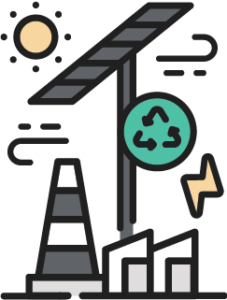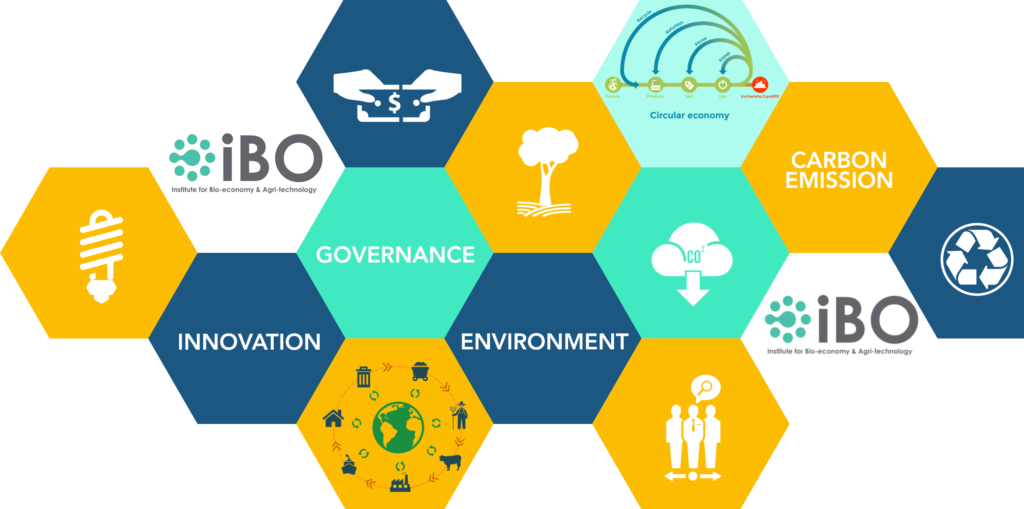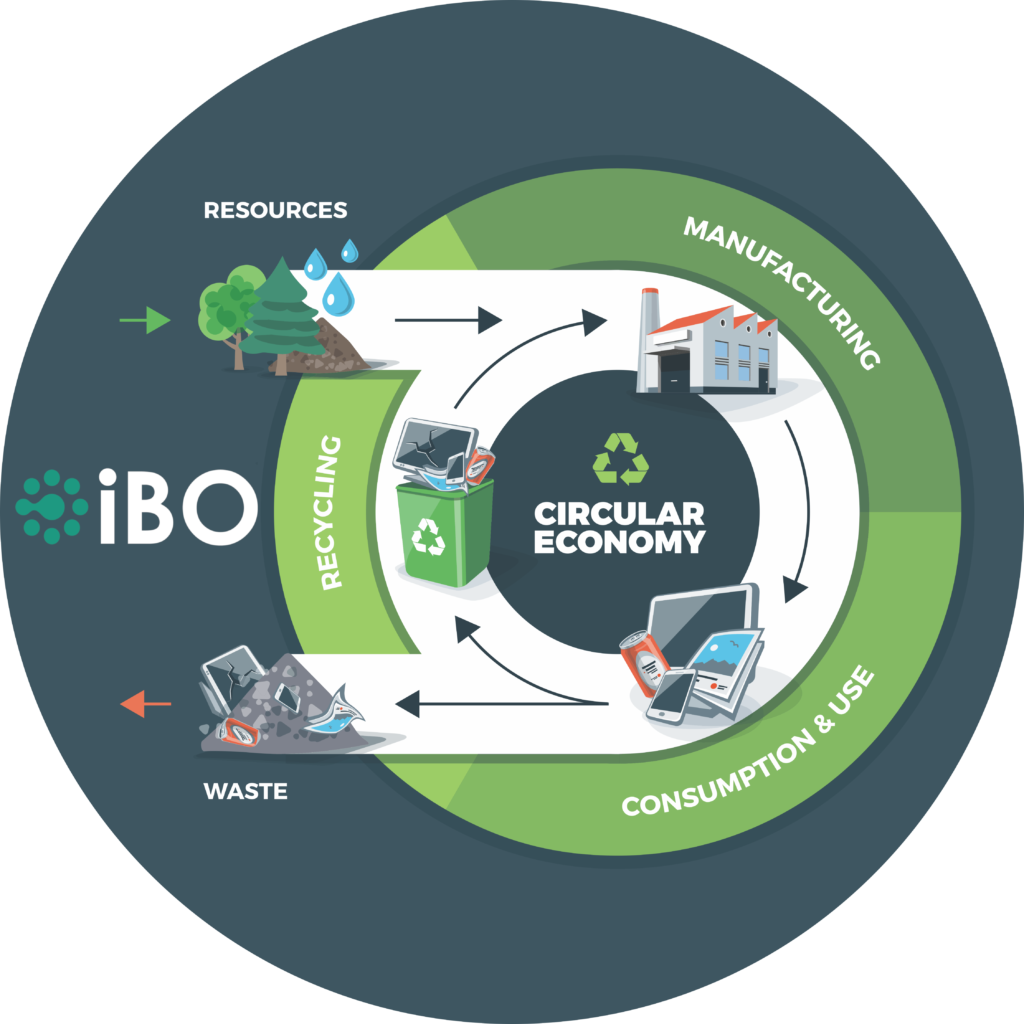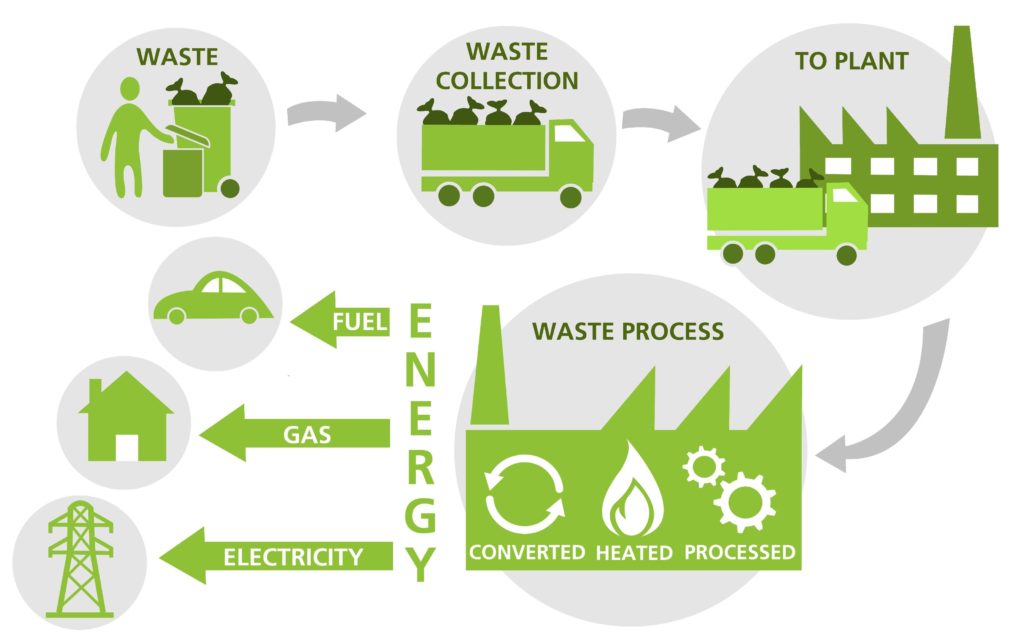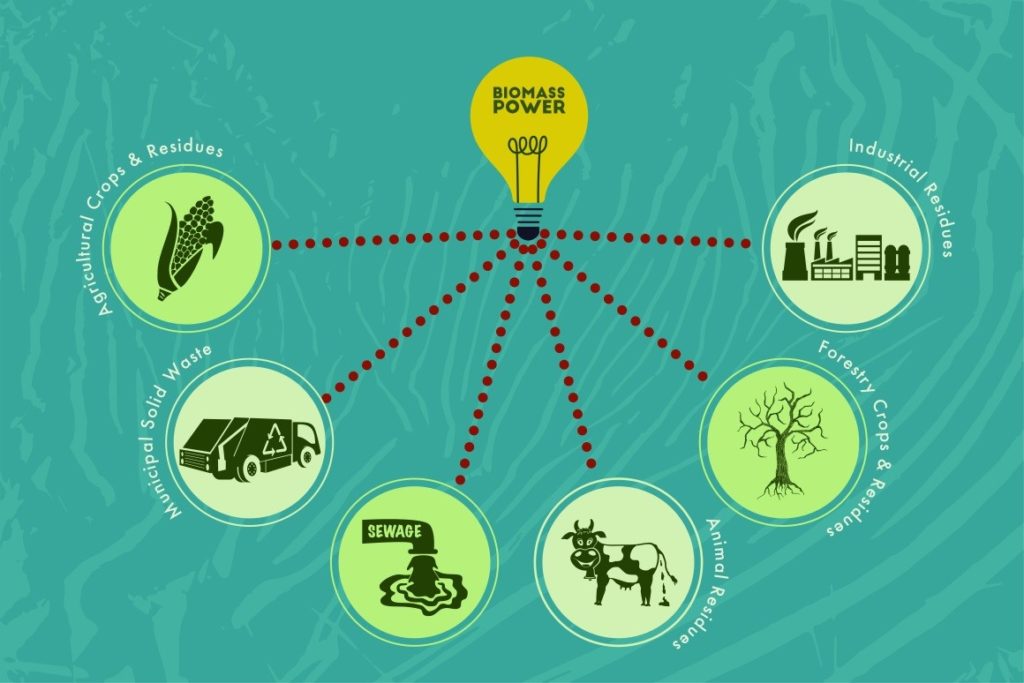ΚYKLOS 4.0

H2020-DT-2018-2020
ΚYKLOS 4.0
KYKLOS 4.0 - An Advanced Circular and Agile Manufacturing Ecosystem based on rapid reconfigurable manufacturing process and individualized consumer preferences
Abstract
KYKLOS 4.0 will demonstrate, in a realistic, measurable, and replicable way the transformative effects that CPS, PLM, LCA, AR and AI technologies and methodologies will have to the Circular Manufacturing (CM) Framework. To this end, KYKLOS 4.0 will perform large-scale piloting in 7 pilots to demonstrate the technical, environmental and economic viability of bringing together knowledge and solutions of major European CPS, PLM, LCA and AI technology providers together with the competence and experience of key European industry players in the CM domain.
KYKLOS 4.0 will demonstrate a measurable increase of KYKLOS 4.0 Ecosystem penetration in CM market, a reduction of environmental impact due to the reduction of the use of fossil fuels and raw materials and the impact in seven pilot domains, which cover areas of major importance for the CM sector in Europe.
Project Details
Type:european
Call:H2020-DT-2018-2020
Period: 01/01/2020 - 31/12/2023
Website:https://kyklos40project.eu/
Infopack:Download
BIO CIRCULAR
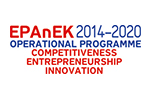
2014-2020 (GSRT)
BIO CIRCULAR
Bioproduction System for Circular Precision Farming
Single RTDI State Aid Action "RESEARCH - CREATE - INNOVATE" funded by the Operational Programme Competitiveness, Entrepreneurship and Innovation 2014-2020 (EPAnEK)
Abstract
The BIOCIRCULAR project aims to integrate smart farming tools and smart processing tools into a single management system for the production chain of a vertically integrated dairy unit. The primary objective of the project is to control and reduce the environmental footprint of the production process and the products produced. More specifically, the BIOCIRCULAR project addresses important issues in inefficient and unsustainable farming practices that lead to inappropriate application of resources such as chemical fertilizers, un-optimized value chains and inadequate data handling and processing. In addition, the project includes actions for the design and optimization of water management. The direct objective of the project is to control and reduce the environmental footprint of the plant's activities through the use of modern technologies for the optimization of waste management in plant and livestock phases, as well as, processing and standardization of dairy products. All of the above will be integrated into an integrated milk production management system and will provide the foundation for the development of an intelligent circular farming decision support system.
Project Details
Type:national
Call:2014-2020 (GSRT)
Period: 06/09/2018 - 05/08/2022
Website:http://biocircular.gr
Infopack:Download
OPTIMA

H2020-SFS-17-2017
OPTIMA
Optimised Pest Integrated Management to precisely detect and control plant diseases in perennial crops and open-field vegetables
Abstract
OPTIMA will develop an environmentally friendly IPM framework for vineyards, apple orchards and carrots by providing a holistic integrated approach which includes all critical aspects related to integrated disease management, such as i) novel bio-PPPs use, ii) disease prediction models, iii) spectral early disease detection systems and iv) precision spraying techniques. It will contribute significantly to the reduction of the European agriculture reliance on chemical PPPs resulting in reduced use of agrochemicals, lower residues and reduced impacts on human health. OPTIMA will: • optimize disease prediction models for downy mildew in vineyards, apple scab in apple orchards and alternaria leaf blight in carrots to envisage faster the possibility of disease outspread and developing advanced early detection methods based on spectral imaging and deep learning techniques to precisely localise and quantify the infection. • evaluate and screen biological and synthetic PPPs for their combined ability to control the selected diseases and weigh the optimum dosage and application timing and identifying and characterize induced host resistance mechanisms to achieve higher and durable resistance. • enhance and develop three innovative prototype sprayers (for carrots, apple orchards and vineyards) actuating different nozzle types and adopting variable rate control based on canopy characteristics, the pathogen dispersal and disease development. • Test and assess the holistic developed IPM system in field conditions with the three selected crops. The advanced sprayer prototypes and the monitoring system will be tested in real-time to record field efficacy and potential discrepancies from the expected effectiveness. • assess health, environmental and socioeconomic impacts of the proposed IPM system in comparison to conventional systems using an extended Life-Cycle approach integrated with Human and Environmental Risk Assessment.
Project Details
Type:european
Call:H2020-SFS-17-2017
Period: 01/09/2018 - 31/01/2022
Website:http://optima-h2020.eu/
Infopack:Download
INNOSETA

H2020-RUR-10-2016-2017
INNOSETA
Accelerating Innovative practices for Spraying Equipment, Training and Advising in European agriculture through the mobilization of Agricultural Knowledge and Innovation Systems
Abstract
The aim of this network is to set-up a self-sustainable Thematic Network on Spraying Equipment, Training and Advising designed for the effective exchange between researchers, industry, extension services and farming community. This network will link directly applicable research and commercial solutions and grassroots level needs and innovative ideas thoroughly captured, thus contributing to close the research and innovation divide in this area. The proposed network will be organized to cover spraying application needs in the most commonly used crops in Europe: cereals, vegetables, orchards, vineyards and greenhouses organized in seven national innovation hubs linked with international interactive workshops. This Thematic Network will address important and timely issues that are critical to improve crop productivity and reduce environmental impact. These include: • spraying equipment, technologies and practical methods to estimate and reduce spray drift and environmental contamination • information and procedures on the benefits of following regular inspections of sprayers in use • new spraying equipment and components to increase the efficacy of the application • practical information and advice on the dose expression dilemma especially for orchard and bush crops • calibration and operation procedures using lively videos and developed interactive training and learning material • classification schemes for sprayers and nozzles to enable farmers and pesticide companies to decide on the most suitable to them nozzle/sprayer/technology combination for certain pesticide application • environmental requirements for new sprayers following ISO 16119 • best management practices acquired over the years from several EU projects and research publications.
Project Details
Type:european
Call:H2020-RUR-10-2016-2017
Period: 01/05/2018 - 30/04/2021
Website:http://www.innoseta.eu/el/__trashed/
Infopack:Download
